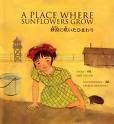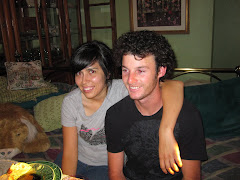Tuesday, November 30, 2010
Thursday, November 25, 2010
Monday, November 22, 2010
Truth and Untruth...
A Fundamental Rivalry
That being the case, how did untruth come to be? Jesus Christ provided the authoritive answer when he told his religious opposers, who were seeking to kill him: "You are from your father the Devil, and you wish to do the desires of your father. That one was a manslayer when he began, and he did not stand fast in the truth, because truth is not in him. When he speaks the lie, he speaks according to his own disposition, because he is a liar and the father of the lie." (John 8:44) Jesus, of course, was referring to the event in the garden of Eden when Satan induced the first human pair to disobey God and thus fall victim to sin and death. -Genesis 3:1-5; Romans 5:12.
The fundamental rivalry between truth and untruth, started by Satan the Devil, still rages today. It permeates all levels of human society and affects every individual. The way a person lives puts him on one side of the issue or the other. Those on God's side base their life course on the truth of God's Word, the Bible. Anyone who does not follow the way of the truth falls, knowingly or unknowingly, into the hands of Satan because "the whole world is lying in the power of the wicked one." -John 5:19; Matthew 7:13, 14.
W. 2/1/07As a Fine Shepherd, Jesus is setting a practical and safe path for us. When we take a stand for his way of ruling we are no longer a part of the world. If, as obedient sheep we are determined to listen to Jesus' words, we will be guided and protected.
(Please compare: John 10:11, 27; John 17:15-17; Colossians 1:13, 18)
Thursday, November 18, 2010
Tuesday, November 16, 2010
Sunday, November 14, 2010
Is the Bible's Creation Account in Harmony
with True Science?
Some of you may have noticed that on my side bar I have been posting Bible Stories. I hope you will enjoy them. My goal is to comment on a new story once a week (Thursday) The purpose is that we will be encouraged and build our faith by means of God's Word. Please take a few moments of your time and read the additional scriptures from your own copy of the Bible. I know you will appreciate these precious words from our Heavenly Father.
What about the creative days? Some think they were 24 hour days, others point to the fact that it is unscientific to think the earth was created in just one week , so they view the creation account as a myth. What do you think? Here is some food for thought:
When reading the Genesis account, it is good to remember that it describes events as they would have been seen by humans had they been present. How long is a Genesis "Day"? Notice that at Genesis 2:4 all the creative periods (or days) are called one "day": "This is a history of the heavens and earth in the time of their being created, in the day [all six creative periods] that Jehovah God made heaven and earth."
The Hebrew word "yohm", translated "day", can mean different lengths of time. One of these meanings brought out in William Wilson's Old Testament Word Studies is : "...Day is also put for a particular season or time when any extraordinary event happens." The creative days were certainly periods of time when extraordinary events were described as happening. It also allows for periods much longer than 24 hours.
But what about the expressions "evening" and "morning" in relation to the creative periods. Doesn't this mean they were only 24 hours? Not necessarily. In some places people often refer to a man's lifetime as his "day". They may say "my father's day" or "in Shakespeare's day". Also, it is not uncommon to divide up that lifetime saying, "in the morning [or dawn} of his life" or "in the evening {or twilight} of his life." So 'evening and morning' in Genesis chapter 1 is not limited to merely meaning a literal 24 hours. "The day of harvest" involves many days. So, it is reasonable to conclude that the "days" of Genesis could also mean long periods of time -even millenniums. A thinking person would then ask, "Is the Bible's account of the creative days scientific?
Wallace Pratt, a well-know geologist said, "If I as a geologist were called upon to explain briefly our modern ideas of the origin of the earth and the development of life on it to a simple, pastoral people, such as the tribes to whom the book of Genesis was addressed, I could hardly do better than follow rather closely much of the language of the first chapter of Genesis." This geologist also noted that the order of events- from the origin of the oceans, to the emergence of land, to the appearance of marine life, and then to birds and mammals - is essentially the sequence of the principal divisions of geologic time.
So, if you ever talk to someone who tries to undermine God's word by saying it is unscientific, you will have a fine response and may even get the person to really think.
Some of you may have noticed that on my side bar I have been posting Bible Stories. I hope you will enjoy them. My goal is to comment on a new story once a week (Thursday) The purpose is that we will be encouraged and build our faith by means of God's Word. Please take a few moments of your time and read the additional scriptures from your own copy of the Bible. I know you will appreciate these precious words from our Heavenly Father.
What about the creative days? Some think they were 24 hour days, others point to the fact that it is unscientific to think the earth was created in just one week , so they view the creation account as a myth. What do you think? Here is some food for thought:
When reading the Genesis account, it is good to remember that it describes events as they would have been seen by humans had they been present. How long is a Genesis "Day"? Notice that at Genesis 2:4 all the creative periods (or days) are called one "day": "This is a history of the heavens and earth in the time of their being created, in the day [all six creative periods] that Jehovah God made heaven and earth."
The Hebrew word "yohm", translated "day", can mean different lengths of time. One of these meanings brought out in William Wilson's Old Testament Word Studies is : "...Day is also put for a particular season or time when any extraordinary event happens." The creative days were certainly periods of time when extraordinary events were described as happening. It also allows for periods much longer than 24 hours.
But what about the expressions "evening" and "morning" in relation to the creative periods. Doesn't this mean they were only 24 hours? Not necessarily. In some places people often refer to a man's lifetime as his "day". They may say "my father's day" or "in Shakespeare's day". Also, it is not uncommon to divide up that lifetime saying, "in the morning [or dawn} of his life" or "in the evening {or twilight} of his life." So 'evening and morning' in Genesis chapter 1 is not limited to merely meaning a literal 24 hours. "The day of harvest" involves many days. So, it is reasonable to conclude that the "days" of Genesis could also mean long periods of time -even millenniums. A thinking person would then ask, "Is the Bible's account of the creative days scientific?
Wallace Pratt, a well-know geologist said, "If I as a geologist were called upon to explain briefly our modern ideas of the origin of the earth and the development of life on it to a simple, pastoral people, such as the tribes to whom the book of Genesis was addressed, I could hardly do better than follow rather closely much of the language of the first chapter of Genesis." This geologist also noted that the order of events- from the origin of the oceans, to the emergence of land, to the appearance of marine life, and then to birds and mammals - is essentially the sequence of the principal divisions of geologic time.
So, if you ever talk to someone who tries to undermine God's word by saying it is unscientific, you will have a fine response and may even get the person to really think.
Thursday, November 11, 2010
Thursday, November 4, 2010
Monday, November 1, 2010
Subscribe to:
Comments (Atom)































































































































